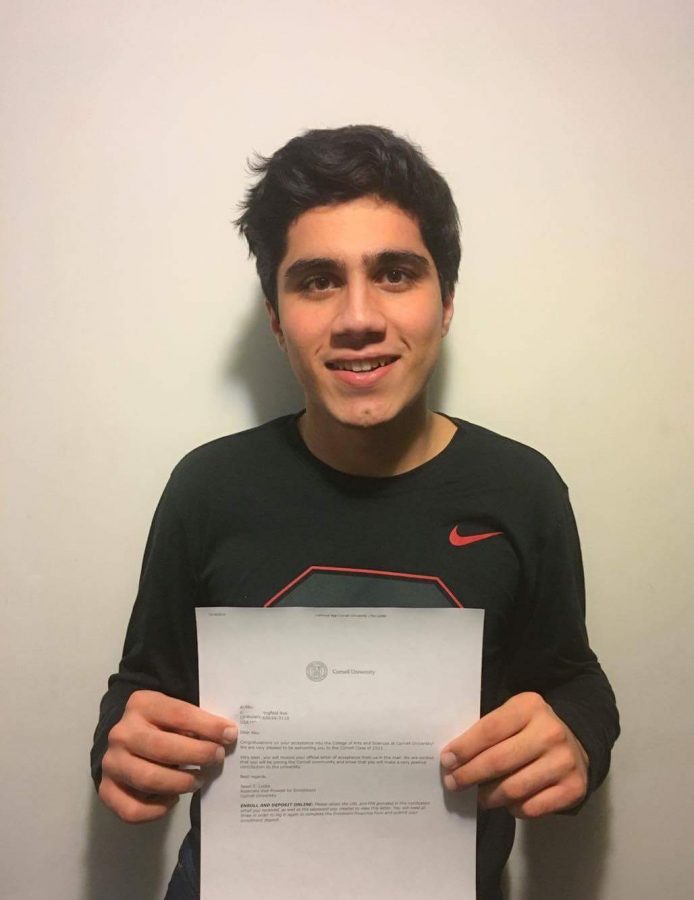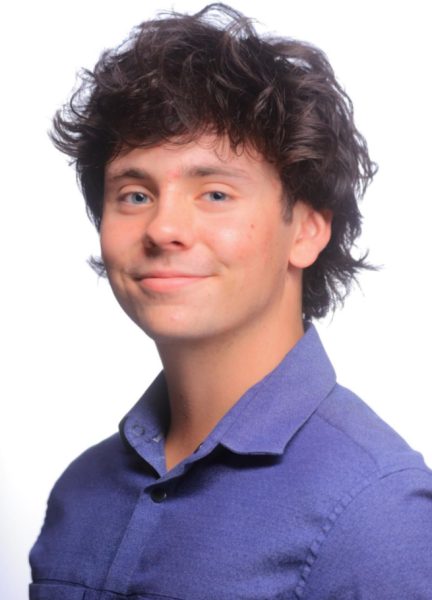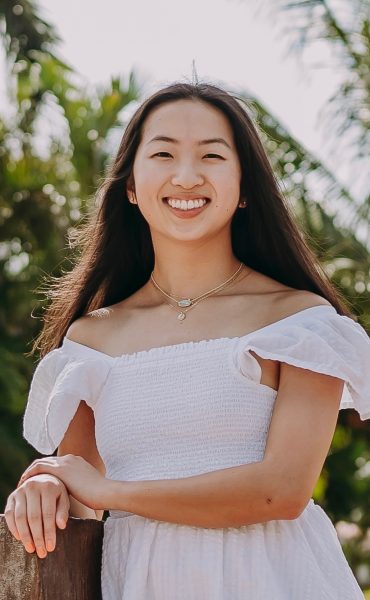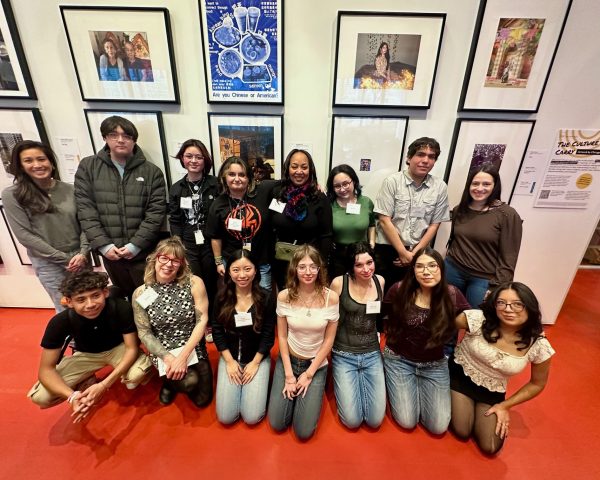From student to businessman
Qader poses with his acceptance letter to Cornell University, where he received a full-tuition Posse scholarship.
While most students spend 10-15 hours a week on homework, Abu Qader, Div. 760, does just that on starting up his own company.
At only 17 years old, Qader thought of and created GliaLab, a biotechnology company. Its artificially intelligent software is able to detect and diagnose breast cancer more accurately for a non expensive cost. GliaLab has expanded and is now also partnered with hospitals in Europe, according to DNAInfo.
“This is my first time doing anything like this, it’s a learning process for me.”
Qader’s freshman computer science class is what originated this process. In his sophomore year, his computer science class had to submit one project for the science fair.
“My grandma passed away from it [breast cancer] a long time ago, so I decided to try to apply artificial intelligence to healthcare,” Qader said. “Everyone else was using it for finance and stocks, but we were like ‘why don’t we try to do that with breast cancer.”
Qader continued his study and posted it online. A 28-year-old man from Europe discovered Qader’s research, flew into the United States to meet with him, and later became GliaLab’s cofounder.
As the company grew, the two of them realized they needed more hands involved. They put out an application online and received over 300 applicants, including NASA employees. GliaLab decided to go a different direction and fill their job positions with people who are intelligent, but come from under resourced communities, Qader said.
“It’s a bit weird trying to tell people that are like 24-25 years old what to do while they all know that you’re only 17,” Qader said.
Qader has been extremely successful and claims this to be true because of how sociable he is regardless of his age. Qader thanks Lane for this.
“It’s such a big school that you learn to be sociable. You learn how to talk well and elaborate on things. That’s really helped me out,” he said.
Lane staff and administration has supported Qader. He says, “The whole computer science department have been awesome to me about it. Ms. Roscoe, my sophomore teacher, was the one that really pushed me to get into computer science. She was the teacher that I showed my project to. Mr. Tennison has been pretty awesome at just recognizing what I’m doing and talking to me about it.”
Qader has also earned recognition outside of the doors of Lane — he recently received a Posse scholarship for Cornell University.
He said he is grateful for Lane’s rigor since it has prepared him for an Ivy League University as well as success in his company. Most students complain about homework, but Qader said he thanks Lane for preparing him to handle starting and running his own company.
“If I was at another school, I don’t think I could’ve done it,” Qader said.
Your donations directly fund the Lane Tech student journalism program—covering essential costs like website hosting and technology not supported by our school or district. Your generosity empowers our student reporters to investigate, write, and publish impactful stories that matter to our school community.
This website is more than a publishing platform—it's an archive, a research tool, and a source of truth. Every dollar helps us preserve and grow this resource so future students can learn from and build on the work being done today.
Thank you for supporting the next generation of journalists at Lane Tech College Prep!
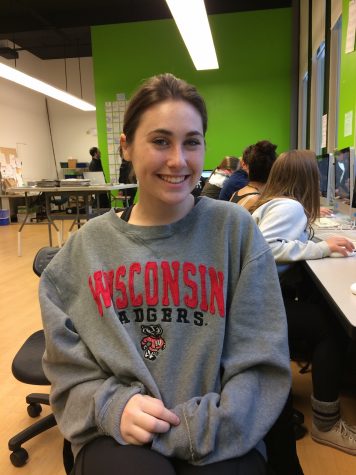
Morgan Alexander is a senior at Lane Tech who writes for Lane’s newspaper. In addition to participating in Journalism I, she is co-captain of the dance...

